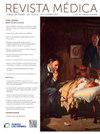Percepciones sobre educación interprofesional en estudiantes y docentes de primer año en carreras de Ciencias de la Salud a través de Aprendizaje-Servicio en contexto de COVID-19: un análisis mixto
IF 0.4
Q4 MEDICINE, GENERAL & INTERNAL
引用次数: 0
Abstract
Introduction
Interprofessional education (IPE) is crucial for the training of future health professionals, promoting collaboration and teamwork between disciplines. This study analyzes the perceptions about IPE of students and teachers in first year health sciences courses, using a Service Learning (S-L) methodology, which was conducted online during the COVID-19 pandemic.
Methodology
A sequential mixed-method approach was implemented involving 88 students and 12 faculty members from Occupational Therapy, Physiotherapy, Nutrition and Dietetics, and Speech Therapy.
Results
The findings revealed significant differences in the disposition towards interprofessional learning and interprofessional education after the intervention, especially in Nutrition and Dietetics students. Furthermore, the qualitative analysis highlighted the favorable perception of students and teachers towards IPE in virtual mode. Key skills such as interaction, communication, commitment, respect, and empathy were highlighted. The triangulation of qualitative and quantitative data showed convergence in “teamwork” and “patient-centeredness”.
Conclusion
This study supports the importance of IPE in the undergraduate training of health professionals, even in virtual environments like the present. Students demonstrated an excellent disposition and patient-centered approach. These findings underscore the need to continue developing undergraduate IPE programs, equipping students with skills and competencies for their future professional careers.
在 COVID-19 的背景下,健康科学本科课程一年级学生和教师通过服务学习对跨专业教育的看法:混合分析。
引言跨专业教育(IPE)对于培养未来的卫生专业人员、促进学科间的合作和团队精神至关重要。本研究采用服务学习(S-L)方法,分析了一年级健康科学课程的学生和教师对 IPE 的看法,研究在 COVID-19 大流行期间在线进行。此外,定性分析强调了学生和教师对虚拟模式 IPE 的良好看法。互动、沟通、承诺、尊重和移情等关键技能得到了强调。定性和定量数据的三角分析表明,"团队合作 "和 "以病人为中心 "是一致的。学生们表现出了良好的性格和以病人为中心的态度。这些发现强调了继续发展本科生 IPE 课程的必要性,使学生具备未来职业生涯所需的技能和能力。
本文章由计算机程序翻译,如有差异,请以英文原文为准。
求助全文
约1分钟内获得全文
求助全文
来源期刊

Revista Medica Clinica Las Condes
MEDICINE, GENERAL & INTERNAL-
CiteScore
0.80
自引率
0.00%
发文量
65
审稿时长
81 days
 求助内容:
求助内容: 应助结果提醒方式:
应助结果提醒方式:


